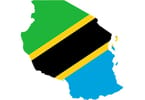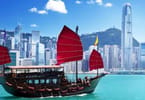Comments attributed to a senior insurance executive recently that hotels and resorts along the Indian Ocean beaches of Malindi and Mombasa (both in Kenya) should stop using the traditional makuti or palm leaf panels for roofing has apparently upset several hotel owners.
Makuti roofs are common along the coast as they support ventilation and are part and parcel of traditional architectural styles, which so attractive to foreign visitors to the Kenyan resorts.
Makuti is handmade, provides a source of sustainable income for many families involved in the weaving and production of the roofing panels, and is entirely made of local material taken from the branches of the coconut palms.
Fire retardants are now also commonly used by developers and contractors to reduce the flammability of the material without having to do away with it, as the high-pitched roofs of coastal hotels are one of the main visual attractions for visitors from upcountry and abroad.
Said one hotelier from the coast: “We have for years now sprayed our makuti roofs with special liquids to prevent easy outbreak and spread of fires. But what we do not understand is an insurance man to threaten that they will not insure us when we use makuti roofing for parts of our hotels. Visitors from far away do not come to stay in concrete boxes like back home; they come for our unique attractions. If we do not have enough headaches right now already over water and electricity, now the insurances are adding to our problems. There is a lot of ignorance amongst them, and they should discuss with us, not threaten.”






















